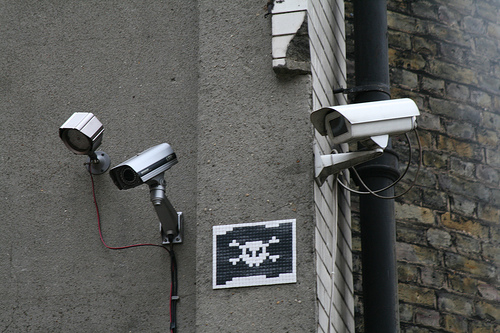WA audit fails police CCTV project

Western Australia Police's closed circuit television project, Blue Iris, is failing to achieve its aims, with its back-end systems deemed inadequate and the police untrained in its use, according to a report tabled by WA acting auditor-general Glen Clarke in parliament yesterday.

(Why cameras fail image by
Mathias Klang, CC2.0)
The project, which was launched in April 2009, aims to develop a comprehensive register of information about individual government and private sector CCTV installations so police can quickly and easily obtain imagery needed during an investigation.
State government agencies are required to record their installations in the register, while the public is encouraged to list their details also.
Ideally, the register contains the location at which CCTV cameras are installed, including its GPS coordinates, the number of cameras, types of recording systems, the imagery retention period and the contact details of persons responsible for the cameras.
In addition to providing police with resources during its investigations, the project was also meant to allow it to potentially negotiate with the owners of major CCTV installations to access live feeds during major incidents or emergencies.
However, the audit of Blue Iris found that the data in the register was "not accurate, complete, accessible or useful to investigators" and that "considerable further development and a commitment to adequate administration is needed before the system can reach its full potential".
At the time of the audit, online registrations were not possible because the web interface had not been functioning. Additionally, the project had a backlog of 7302 entries to the register because they lacked GPS coordinates, a problem exacerbated due to the fact that sites lacked a street address, such as marinas, weren't able to be entered.
Even if installation owners determined their cameras' GPS coordinates at a later date, there was no option for them to modify, update or withdraw their camera registrations and there was no administrative facility in the register's back-end systems to allow any database administration.
"The register contains numerous inconsistencies, and some entries that appear to be spurious or even mischievous," the auditor-general's report read.
The register also failed to contain useful, known information on many government CCTV installations as well as, at the time of the audit, the City of Bunbury's camera locations. The City of Perth's cameras were registered, but not as individual sites, and all the cameras were recorded as being in a single location. Furthermore, the largest CCTV owner in Western Australia, the Public Transport Authority, had not registered any of its cameras.
All the police officers interviewed during the audit process thought that a tool would be useful, but no training had been offered to any front-line police and none had used the tool in their investigations. Instead, police have had to continue doorknocking to search for possible CCTV imagery.
In its current state, the project appears to have been partially abandoned, with the auditor's report stating "there has been no systematic follow-up of initial publicity campaigns and no systematic pursuit of state government agencies to ensure they had met their obligation to register their CCTV installations with Blue Iris".
While WA Police said it had commenced designing and implementing the next stage of the register to address technical issues, the auditor-general said that registrations, administrative resources, deployment strategies and end-user training must also be given adequate support.